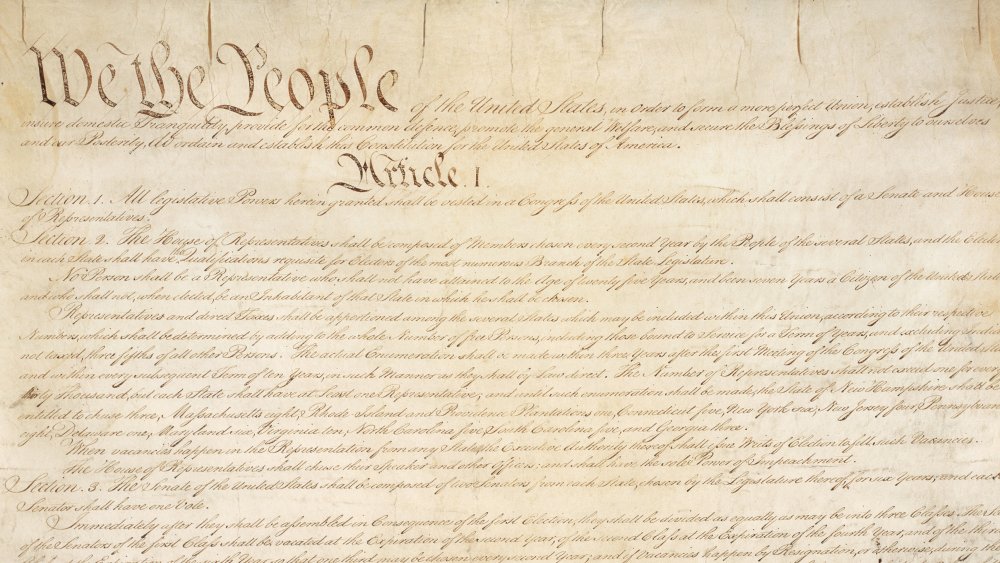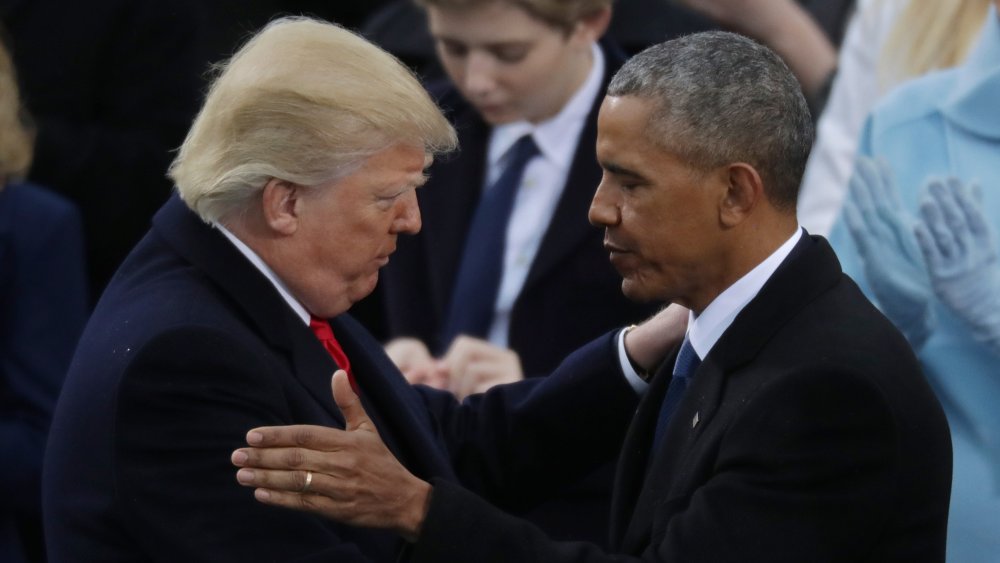Is There An Age Requirement To Run For President Of The United States?
It's safe to say that there ought to be a pretty high bar for becoming President of the United States. It makes sense that a candidate should be required to have, for example, a strong working knowledge of international policymaking, or a deep understanding of how the guts of the United States' political system operates. It also makes sense that if a candidate is too young, he or she might be lacking in the life experience necessary to represent 330 million diverse people. Presidents can come from any kind of background — lawyers, military leaders, educators, whatever. But in the era of big money, career politicians have, as outlined in the Atlantic, disintegrated the connection between political leaders and the public, and created an insular, inward-facing political machine, all the way up to the presidency.
So what are the rules that establish who can become president? And, do those rules still make sense in the present-day political climate, or is it time to reexamine their wisdom?
At present, one of the best-known rules for becoming president, as outlined in Article II of the constitution and readable on Senate.gov, is that a candidate must be a natural-born citizen of the US, and have been a resident for 14 years (assumedly not in a row). And, as more people have taken notice, the president must be at least 35 years old. Beyond these conditions, there really are no stipulations preventing just about anyone from becoming president (for better or for worse).
There was a great debate about the United States president's age
But why 35? The age of 35 seems like a solid enough of an "adult" number, sure — enough perspective on the past, and enough time left to change the future. After all, in ancient Rome people couldn't be elected to the lowest public office, quaestor, until 30, and the higher office of consul until 43, per the BBC.
According to the Constitution Center, the 35-year old requirement hasn't been changed since the US Constitution was drafted in 1787. At that time, there wasn't too much debate about the issue aside from some grumbling between two founders: James Wilson, a future Supreme Court Justice, and George Mason, who eventually refused to sign the constitution. Mason believed that the opinions of young people were too underdeveloped or narrow to be of use to the public, and Wilson said that anyone's voice was worth hearing. Founding Father and future president James Monroe also pointed to the term of presidency, saying that a 35-year gap would help prevent dynasties from parent to children, like a monarchy.
In the end, Mason's argument won the vote 7-3. One 1787 newspaper column that wrote about the ruling said what we can now view with irony, "... So will he and his fellow citizens remember that he was originally one of the people; and that he is created by their breath. Further, he cannot be an idiot, probably not a knave or a tyrant, for those whom nature makes so, discover it before the age of thirty-five."

